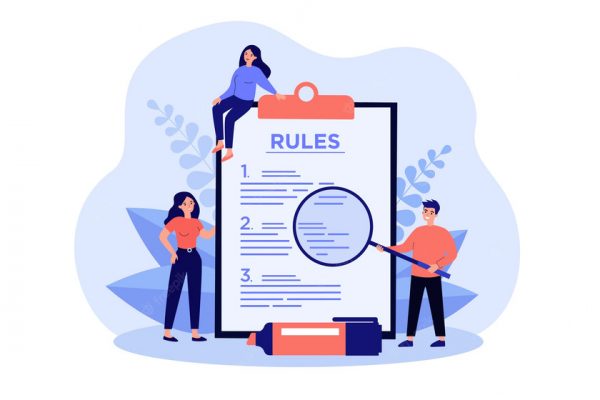Love is a complex and captivating aspect of the human experience. From the exhilarating rush of saying those three little words to the deep and unbreakable bond it creates, love has the power to shape our lives in profound ways.
But how do we navigate its mysteries? In this blog post, we delve into the intriguing questions surrounding love: How soon is too soon to say I love you? Why is love considered the most compelling force? Is love truly a choice? And is it worth waiting for and more?
Let’s explore the depths of the human heart and unravel the enigma of love.
Why is Love the Most Compelling Force?

Love is often considered the most compelling force because it has a profound impact on our emotions, thoughts, and behaviors.
Here are a few reasons why love is so powerful:
- Deep Emotional Connection: Love creates a strong emotional bond between individuals. It can evoke intense feelings of joy, happiness, warmth, and affection. Love allows us to experience a sense of belonging and fulfillment, making it a deeply gratifying and compelling force.
- Motivation and Sacrifice: It has the power to motivate us to act selflessly and make sacrifices for the well-being and happiness of those we love. It can inspire acts of kindness, generosity, and compassion, driving us to go beyond our own needs and desires.
- Sense of Purpose and Meaning: It gives us a sense of purpose and meaning in life. When we love someone deeply, our actions and decisions often revolve around nurturing and protecting that love. It provides us with a sense of direction and fuels our aspirations and goals.
- Connection and Intimacy: Love fosters a profound sense of connection and intimacy with another person. It enables us to share our vulnerabilities, hopes, and dreams, creating a deep understanding and acceptance. This connection satisfies our innate need for companionship and emotional support.
- Healing and Growth: It has the power to heal emotional wounds and promote personal growth. It can bring solace, comfort, and reassurance during challenging times. Love encourages self-reflection, empathy, and personal development, leading to enhanced emotional well-being.
- Unconditional Acceptance: Love often involves accepting and appreciating someone for who they truly are, with their flaws and imperfections. This unconditional acceptance and support provide a sense of security and empowerment, fostering personal growth and resilience.
- Sense of Oneness: It can dissolve boundaries and create a sense of oneness between individuals. It bridges differences and promotes unity, promoting harmony and understanding.
While love can bring immense joy and fulfillment, it’s important to note that it can also be complex and sometimes bring challenges and heartache. However, its inherent power to shape and transform our lives is what makes it such a compelling force.
Do You Believe That Love is a Choice?

The concept of love being a choice is a topic of debate and can vary depending on personal beliefs and perspectives. Here are two common viewpoints:
Love as a Choice
Some people argue that love is a conscious decision and a choice we make. According to this perspective, we have control over our actions and emotions, and we actively choose to love and commit to another person.
It involves choosing to prioritize the well-being of the person we love, making efforts to nurture the relationship, and actively demonstrating love through our words and actions. From this standpoint, love is seen as an ongoing commitment and a choice we make every day.
Love as a Feeling
Others believe that love is primarily an emotional experience and not entirely within our conscious control. According to this viewpoint, love arises spontaneously, and we cannot force ourselves to feel love for someone.
Love is seen as a natural response to certain conditions, shared experiences, and compatibility. While we can choose to act on our feelings of love, the initial emotional connection itself is not seen as a choice.
In reality, love often involves a combination of choice and emotions. The initial attraction and feelings of love might emerge without conscious control, but how we choose to nurture and sustain that love requires active decisions and efforts.
Relationships require commitment, communication, and mutual effort to thrive, and those aspects involve making choices to prioritize and invest in the relationship.
How Soon is Too Soon to Say I Love You?

Determining when it’s too soon to say “I love you” can be a subjective matter and depends on the individuals and the dynamics of the relationship.
Different people have varying comfort levels and timelines for expressing their feelings. However, there are some general guidelines you can consider:
Know the Person Well
It’s essential to have spent enough time together to understand each other’s personalities, values, and priorities.
Consider the Level of Emotional Intimacy
Have you both shared vulnerable and personal aspects of your lives with each other? Meaningful emotional connections often precede the expression of love.
Reciprocation
Ensure that there’s a level of mutual affection and care between you. Saying “I love you” is more meaningful when both parties are on the same emotional page.
Avoid Rushing
Love needs time to grow and develop. Rushing into declaring love might not allow the relationship to mature organically.
Trust your Instincts
Reflect on your feelings and intuition. If you genuinely feel a strong connection and love for the person, it might be worth expressing, even if it’s earlier than expected.
Ultimately, there is no fixed timeline for saying “I love you.” Some couples might say it after a few weeks, while others might take months or even longer. The most crucial factor is that the feelings are genuine and come from a place of sincerity and depth.
It’s also essential to be prepared for the possibility that the other person might not be ready to say it back, and that’s okay. It’s a vulnerable moment, and both individuals should feel comfortable with the timing and expression of their emotions.
What is the Reason Why Love is Meant for Everyone?

The belief that love is meant for everyone stems from the idea that humans have an inherent capacity for emotional connection, companionship, and a desire to love and be loved.
Here are a few reasons why love is often considered a universal experience:
Fundamental Human Need
Love and connection are often seen as fundamental human needs. From the moment we are born, we seek emotional bonds with others for support, nurturing, and companionship. Love fulfills our need for emotional intimacy, acceptance, and belonging.
Emotional Well-Being
Love has a profound impact on our emotional well-being. It brings joy, happiness, and a sense of fulfillment. Being in loving relationships can contribute to a greater sense of life satisfaction, overall happiness, and a positive outlook on life.
Support and Growth
Love provides a support system during both joyful and challenging times. Having someone who cares deeply for us can offer comfort, encouragement, and a sense of security. Love also facilitates personal growth, as it can inspire us to become better versions of ourselves, offering emotional and moral support.
Social and Cultural Norms
Love and romantic relationships are deeply embedded in social and cultural norms across the world. They play significant roles in family structures, societal bonds, and the continuation of human relationships and communities.
Universal Desire
The desire for love and connection is widespread across cultures and transcends boundaries. It is often depicted in art, literature, and music, further emphasizing its universal appeal.
While love is considered a common human experience, it’s important to recognize that the forms and expressions of love can vary greatly. Different individuals may seek different types of relationships or prioritize different aspects of love.
Additionally, it’s crucial to respect and value diverse perspectives and experiences, as not everyone may desire or prioritize romantic love in their lives.
Is Love Worth Waiting for?
Whether love is worth waiting for is a subjective question that depends on individual circumstances and perspectives. Here are a few points to consider:
Personal Priorities
Consider your own priorities and values. Some people prioritize finding love and are willing to invest time and effort in waiting for the right person. Others may have different goals and focus on personal growth, career, or other aspects of their lives. It’s important to align your expectations and desires with what feels right for you.
Timing and Readiness
Love often happens when we least expect it, and timing can play a significant role. Sometimes, waiting allows us to grow as individuals, gain more life experience, and develop a better understanding of ourselves and what we seek in a partner.
Being emotionally and mentally ready for a loving relationship can contribute to its success.
Patience and Serendipity
Love can be unpredictable, and it might take time to find the right person. Patience and an open mindset can lead to unexpected and wonderful connections. Waiting for love can also involve trusting in serendipity and believing that the right person will come along at the right time.
Quality over Quantity
It’s important to focus on the quality of the connection rather than rushing into relationships for the sake of being in one. Waiting for love allows you to be selective and find someone who truly aligns with your values, goals, and vision for the future.
Enjoying the Journey
While waiting for love, it’s important to embrace the journey and enjoy the process of self-discovery and growth. Cultivate meaningful friendships, pursue personal passions, and create a fulfilling life for yourself. Love can be a beautiful addition to an already satisfying life.
It’s worth noting that waiting for love does not guarantee a perfect or effortless relationship. Relationships require effort, compromise, and ongoing commitment.
However, if finding a loving partnership is important to you, and you are willing to invest time and energy, waiting for love can hold the potential for a deeply fulfilling and meaningful connection.
What Would You Do if You Don’t Get the Love of the Person You Deserve?

If you find yourself in a situation where you don’t receive the love and affection you believe you deserve from someone, it can be emotionally challenging.
Here are some suggestions on how to navigate such a situation:
- Self-Reflection and Self-Worth: Remember that your worth and value as an individual are not dependent on the love or validation from one specific person. Take time to reflect on your own self-worth, strengths, and qualities. Focus on nurturing self-love and building a positive self-image.
- Acceptance of the Situation: It can be difficult, but accepting that you may not receive the love you desire from this particular person is an important step. Recognize that you cannot control someone else’s feelings or actions, and trying to force or manipulate love is not healthy. Acceptance can bring you peace and help you shift your focus toward personal growth and happiness.
- Seek Support: Reach out to trusted friends, family, or a support network for emotional support and guidance. Sharing your feelings with others who care about you can provide comfort, perspective, and encouragement during this challenging time.
- Prioritize Your Well-being: Focus on your own well-being and prioritize self-care. Engage in activities that bring you joy, pursue your passions, and invest in personal growth. Taking care of yourself physically, emotionally, and mentally will help you heal and move forward.
- Open Yourself to New Possibilities: Be open to the possibility of finding love and connection elsewhere. Sometimes, not receiving the love you believe you deserve from one person can lead you to discover more fulfilling relationships and experiences in the future. Keep an open heart and mind, and allow yourself to explore new connections and opportunities.
Remember that finding love is not a measure of your worth. It is essential to surround yourself with people who appreciate and value you. Focus on building a fulfilling life for yourself, and trust that the right person who can reciprocate your love and affection will come into your life when the time is right.
Why Should You Go to a Mental Health Expert If You’re Struggling in Your Relationship?
Struggling in a relationship can be an overwhelming and emotionally taxing experience. However, seeking help from a mental health expert can provide invaluable support and guidance. Through their expertise, these professionals can help you gain insight into your thoughts, emotions, and behaviors, and assist in building healthier communication patterns, emotional regulation, and coping mechanisms.
They can also help identify and address any underlying mental health issues that may be impacting your relationship. Remember, seeking assistance from a mental health expert is not a sign of weakness but rather a courageous step toward fostering growth, understanding, and ultimately, a happier and healthier relationship.
Don’t hesitate to reach out and invest in the well-being of both yourself and your relationship. Together, with the guidance of a mental health expert, you can navigate the challenges and work towards building a stronger foundation for a fulfilling and loving connection.
Book an Appointment now, and boost your mind.
Summary
Love, with its enchanting allure and transformative power, remains a captivating subject of contemplation. We have delved into the thought-provoking questions that surround love: the timing of expressing those three little words, the undeniable force it possesses, the choice it presents us, and the worthiness of waiting for it.
While there may not be definitive answers to these questions, what remains clear is that love is as diverse and unique as the individuals who experience it. It is a tapestry of emotions, decisions, and personal journeys. Whether it is the passion that ignites quickly or the patience that endures, love continues to weave its threads into the fabric of our lives, bringing joy, growth, and connection.
Embrace the complexities, cherish the moments, and let the journey of love unfold with its own rhythm, for it is in the pursuit and exploration of love that we discover the depths of our own hearts.





